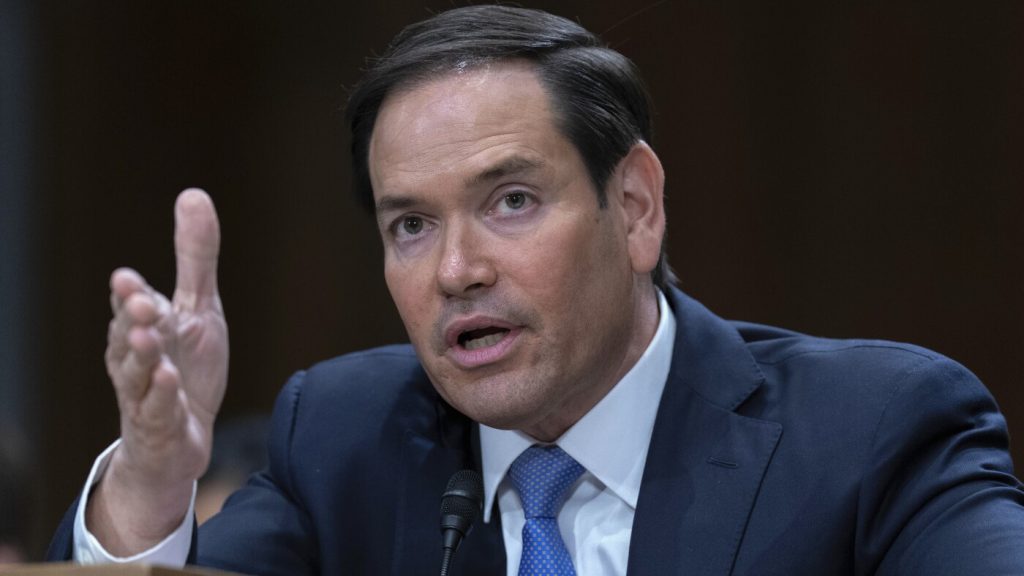Washington, D.C. (Le Floridien) – Secretary of State Marco Rubio has formally acknowledged what many in Haiti and its diaspora have long observed: the Kenya-led multinational mission is failing to restore order in the country. Speaking during a Senate Foreign Relations Committee hearing on Tuesday, Rubio urged a shift in leadership to the Organization of American States (OAS), arguing that only a coordinated regional approach can effectively address the spiraling gang violence gripping Haiti.
Rubio, a former U.S. Senator from Florida with a strong grasp of Haiti’s fragile political dynamics and deepening security crisis, described the situation in blunt terms. “We have a catastrophe in our own hemisphere right now in Haiti,” he said, noting that much of Port-au-Prince, the nation’s capital and most populous city, is now under the effective control of armed gangs.
He acknowledged that the current multinational security mission, led by Kenyan forces and supported financially by the United States, has struggled to restore stability. “The one in place right now isn’t working, and Haiti is headed in a very bad direction very quickly,” Rubio warned.
With the U.S. still providing key support to the Multinational Security Support Mission (MMSS), a decision on continued funding beyond the current mandate is expected by June 1. While expressing gratitude for Kenya’s willingness to lead the mission, Rubio made it clear that the current approach is inadequate. “That mission alone will not solve this problem,” he said.
As an alternative, Rubio proposed that the OAS step in to take charge of a new, more regionally anchored security strategy. “If ever there was a regional crisis that you would think an organization like this could step forward and provide a force or a group of countries that, working together, could help solve it, it would be the OAS,” he told lawmakers.

Rubio’s public remarks highlight growing dissatisfaction within the Trump administration over the lack of progress under the current framework and signal a desire for greater hemispheric cooperation. “We need buy-in from other partners in the region who are as affected, if not more so, by what’s happening there,” he stated, urging OAS member states to play a more active role.
Rubio also raised concerns about a parallel threat to regional security: the illegal flow of firearms from the U.S. into the Caribbean. He specifically named Haiti, Jamaica, and Trinidad and Tobago as key destinations for weapons being smuggled out of Miami in shipping containers. “We are working with several U.S. federal agencies to determine how to stem the flow of weapons,” he said, highlighting the transnational scope of the crisis.
Rubio’s comments may mark a turning point in U.S. policy on Haiti, as they underscore the failure of the current mission and advocate for a new, multilateral framework led by regional actors. His call for OAS involvement opens the door to a more inclusive and effective approach—one that may finally help steer Haiti out of its ongoing humanitarian and security crisis, if regional governments are willing to rise to the challenge.
